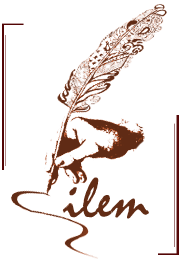
Información sobre el texto
Título del texto editado:
Letter XVIII
Autor del texto editado:
Dillon, John Talbot
Título de la obra:
Letters from an English travaller in Spain, in 1778, on the origin and progress of poetry in that kingdom
Autor de la obra:
Dillon, John Talbot
Edición:
London:
R. Baldwin,
1781
LETTER XVIII
Lordship of Biscay. —Antient poetry in the Vascuense language.
Bilbao, October 10th, 1778.
After travelling over a great many mountains, I at last arrived at this pleasant town, which closes my expedition through the Spanish dominions. As for the antient language of this country called the Vascuense, we are the more perplexed and in the dark, as all the books extant in that language are modern; so that, it is a very difficult matter to give any precise ideas or fix any standard of their tongue, and much less of their poetry, as the natives seem to have reserved a particular corner of Parnassus to themselves, in which they have neither rivals nor competitors.
If the poem in Vascuense mentioned by Argote de Molina in his discourse on Spanish poetry is as antient as the actions which it relates; we should have a tolerable document to form a judgement of the poetry of these people, about the beginning of the fourteenth century, that is towards the year 1320. If we exclude this record, we have no other specimen of their poetry, except some spiritual hymns of Juan de Arambutu, and those of Bernardo de Gazteluzar printed at Pau in 1686, and another anonymous poet mentioned by Larramendi. The most famous of their poets is said to be Juan de Echeverri, a Doctor in Divinity, who composed the life of Christ and of some saints, in this antient verse, which were printed at Bayonne in 1650. As for my part I have in vain studied the language in the grammar of Laramendi, and am willing to take the people on their words, who assure me it is very harmonious; nor can. I give you any satisfactory account of the antiquity of the inhabitants who are supposed to have peopled Ireland. The Irish antiquaries agree that the colonies of Milesians came from Brigantia to Ireland, and O’Flaherty and Keating after, that Florian de Ocampo an old Spanish writer, proves in his chronicle, that the Brigantines of Ireland owe their origin to Spain, and so passed into Wales; but for my part, as I am as little versed in the Irish tongue as I am in the Biscayan, it is not in my power to give you any lights on this subject. Who knows? if I had had the good fortune to read the poems of Ossian in the original, perhaps it might have afforded some assistance, and I might have recovered from obscurity some Biscay warrior, like Fingal, who lorded it over these mountains, and perhaps did feats which the most harmonious verses have done justice to, that now lie buried beyond the reach of our most profound antiquaries.
The inhabitants of the lordship of Biscay, as a free people, enjoy a great many exclusive rights and privileges, beyond the Castilians, or any other subjects of Spain. These rights are set forth in a folio entitled, El Fuero de los Cavalleros de Viscaya, Medina 1575, which book I have sought for in vain, as well as a geographic poem describing the kingdom of Galicia, in alexandrine verse, by Luis de Molina, printed at Mondonedo in 1550.
An Irishman, whose name is William Bowles, who having been employed for these twenty years as an engineer in the king of Spain’s service, and has travelled over most parts of Spain, has lately published some very curious memoirs at Madrid, dedicated to the present king of Spain, intended as an introduction to the natural history and physical geography of that kingdom; amongst other things he has given a pretty full account of the genius and manners of the Biscayans, and has taken some pains to draw a comparison between them and the antient Irish; but this point still admits of further illustration, from the very precarious foundation of all reasoning, arising merely on a supposed similitude of manners and customs: tho’ I readily agree with him in the account he gives of their hospitable disposition and cheerful temper, added to the utmost industry in cultivating their rugged mountains, by which means they have rendered the greatest part of their country both pleasant and fruitful. They, moreover, apply themselves closely to foreign commerce and navigation, having been always deemed industrious traders, and expert and skilful mariners, insomuch that for the whale fishery so far back as 1575, the English merchants were obliged to send to Biscay "for men skilful in the catching of the whale, and ordering of the oil and one cooper, skilful to set up the staved cask." It further appears, that we not only lost all memory of that trade for many centuries, which we had known in the days of king Alfred but that the Biscayans carried it on long before we attempted it again, as well on account of the oil as for the whalebone: the first English ship that went on that trade into the bay of St. Lawrence, according to Hackluyt, in 1594, found part of the cargoe of two Biscay ships that had been wrecked there, three years before. But, because I am drawing nearer to England, you will say, I am again running into digressions, and it matters not, who had that fishery or any other maritime commerce at that time, provided we can hold it at present, and make good the old maxim, "Imperator Marts, Terrae Dominus."


